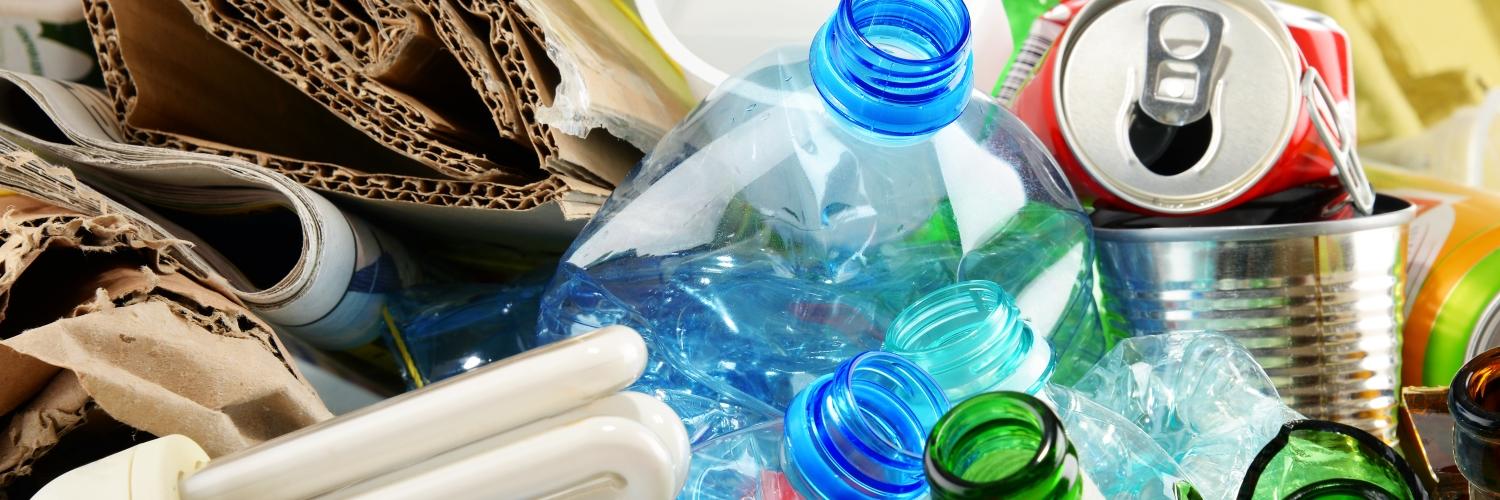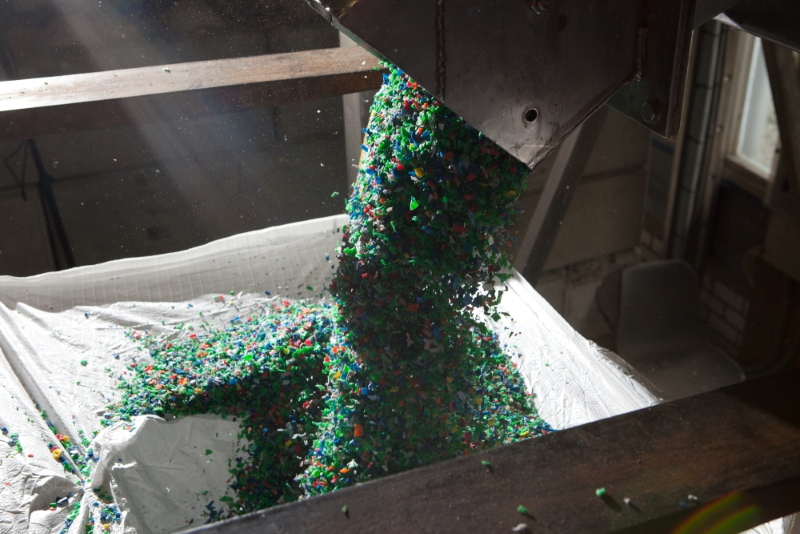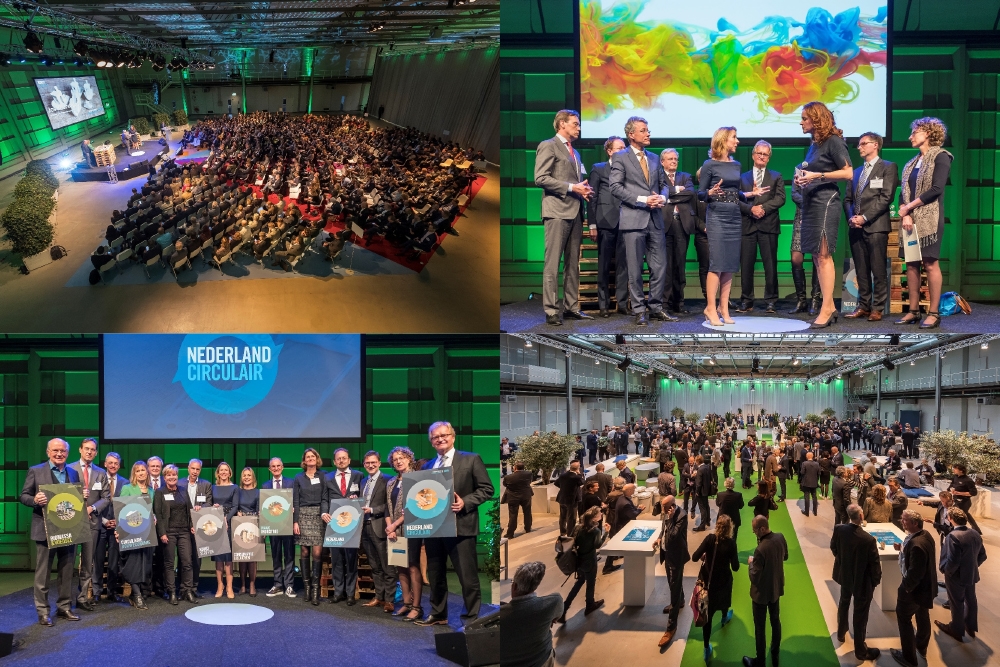
News
27 February 2018
First tools for the circular economy
Dutch transition agendas: waste sector demonstrates commitment
Five Dutch transition agendas towards a circular economy in 2050 were published at the beginning of this year. The waste sector was closely involved in their preparation and all parties are pleased with the result. There is widespread agreement on the need for quality control and for creating a demand-led market for secondary raw materials. The policy visions are clear; it is now time for action.
In the Netherlands five transition agendas towards a circular economy in 2050 were published in mid-January, precisely a year after the National Agreement on the Circular Economy (Grondstoffenakkoord) was signed by industry associations, trade unions, government authorities, knowledge institutes and many other parties. The agendas are for the five priority areas previously identified in the government-wide programme A Circular Economy in the Netherlands by 2050: three key economic sectors (construction, consumer goods and manufacturing industry) and two value chains with a high environmental impact (biomass & food and plastics). Meetings were held throughout the country with as many stakeholders as possible in order to generate ideas and working groups examined individual topics. The whole exercise took about nine months in all. The outcome is a set of long-term visions setting out 'courses of action' for the next ten years.

An important element in the transition agendas is quality control of secondary raw material chains (photo: Norbert Bosman)
Fresh ideas
It was certainly not the intention for the transition agendas to contain binding agreements and it was important that the participants put their own interests on hold to allow room for the emergence of fresh new ideas. Nevertheless, participation does come with strings attached, says Dick Hoogendoorn, director of the DWMA, who was a member of the team behind the transition agenda for consumer goods. 'By participating in this process we have committed ourselves as a sector to the transition agendas. Whether the ambitions are realistic or not remains to be seen, although much can be done. And we must not limit ourselves to the Netherlands alone; our economy is part of a wider international whole. Encouraging circularity of resources in national policy is one thing, but it mustn't stand in the way of a level European playing field.'
Dick Hoogendoorn (DWMA):
"The government should not take too long in deciding its position. There is momentum; everyone wants to take the process forward."
Same level of ambition
At the start of the Transition Agenda for Plastics the participants needed time to adjust to subordinating their own interests to the common goal, recalls Freek Bakker, SUEZ Nederland board member with the operational portfolio for plastics and a member of the transition team for the plastics agenda. 'Also, a conscious decision was made to adopt a free format, which made the process slower. The turning point was when we all arrived at the same level of ambition: the use of renewable plastics must increase in relation to fossil plastics and in the long term we have to stop incinerating plastics. What I regret is that we did not have time to draw up a roadmap with intermediate and verifiable five-yearly targets. But given the complexity of the subject, that would have been quite a challenge.'
Freek Bakker (SUEZ Nederland):
"Quality standards for recycled plastics are desperately needed."
The five transition agendas and their core ambitions
- Biomass & Food: close nutrient loops and stimulate sustainable use of soil and carbon sequestration in the soil.
- Construction: keep raw materials in the construction value chain as much as possible; make large-scale use of biobased materials and make buildings easily and fully disassemblable at the end of their useful lives (materials passports).
- Consumer Goods: maximum reduction of disposable goods and packaging; manufacturers to retain control over products with medium to long turnaround cycles with the aim of extending their useful lives and optimising the reuse of products, component parts and raw materials.
- Plastics: plastic waste will no longer be incinerated and collection systems will be designed to improve the quality of the collected plastic (cleanest possible monostreams); in thirty years' time all plastic materials will be in circular use.
- Manufacturing Industry: increase the security of supply of critical rare earths, which are increasingly used in the manufacture of high-tech products and which are essential for the energy transition (e.g. in wind turbines, solar panels and batteries for electric cars).
Lively discussions
Bakker was chair of the Working Group on Collection and Recycling for the Transition Agenda for Plastics. 'I enjoyed it a lot. There were some lively discussions, but always about the substance, such as what techniques are needed and how to create a healthy market for recycled plastics.' Robert Corijn, Attero marketing manager for secondary raw materials, was also a member of this working group. 'Ideas were not dismissed out of hand. If there was discussion about a particular point, it was put to one side as a question for further research. For example, we are not in favour of biodegradable packaging, except for compostable bin bags to boost the collection of food and green waste. The transition agenda proposes that the added value of biodegradable plastic should be investigated before we continue down this road. Every participant sees opportunities for themselves and for a sustainable and circular society.'
Multi-stakeholder dialogue
The team that worked on the Biomass & Food Transition Agenda consisted of around fifty representatives from all kinds of organisations - from environmental organisation Natuur & Milieu and chemical industry association VNCI to Rabobank and the Dutch federation of agriculture and horticulture LTO Nederland. 'You can rightfully call that a multi-stakeholder dialogue,' says director Klaas van den Berg of Orgaworld, who worked on this agenda on behalf of the DWMA Bioconversion Section. 'Everyone wants their own people to benefit, which makes things difficult. You soon get bogged down in details. But Emmo Meijer, the chair of the working group, is a natural at structuring processes like this and we were able to make rapid progress. What I am very pleased about in the transition agenda is the broad recognition that compost is a sustainable soil conditioner.'

The transition agendas were presented on 15 January 2018 (photos: National government)
Healthy soil
Van den Berg was a member of the working group that focused on closing nutrient loops and encouraging sustainable use of soils. 'The quality of Dutch soils is gradually deteriorating and all the participants realise that we have to keep the soil healthy to ensure it can continue to function in the long term. This means that we must optimise the amount of organic matter in the soil, a key principle underpinning our agenda. There is widespread agreement that organic soil conditioners such as compost should be given a special status in fertiliser policy. I am pleased about this, because it puts compost in a totally different light.'
Carbon pricing
An important 'action line' for the waste sector, explains Van den Berg, is remuneration for carbon sequestration in the soil via compost. 'Our transition agenda explicitly states that we must focus on carbon pricing. If that succeeds, compost will have a more realistic value and be in a better position compared to other fertilisers. If we can then also further improve the source separation of food and green waste, more raw materials will become available for the production of compost - which in turn will deliver a further reduction in net CO2 emissions. Compost replaces the use of raw materials such as peat in potting compost and other substrates.'
Klaas van den Berg (Orgaworld):
"What I am very pleased about in the transition agenda is the broad recognition that compost is a sustainable soil conditioner."
Constant quality
An important element in the transition agendas is quality control of secondary raw material chains. 'Everyone recognises that extra effort is needed,' says Hoogendoorn. 'Industry wants to use these raw materials, but can do so only if consistent quality and security of supply can be guaranteed. Circularity is all well and good, but it has to be built on a solid business case.' Crucial for recycled plastic is ensuring the best possible quality of regranulate and stimulating a demand-led market. 'Everyone agrees that we should work on this in parallel,' says Bakker. 'To get this market working there must be full confidence in the quality of recycled plastics. There is a wide range of different types with their own set of properties, each of which requires a different approach. Quality standards for recycled plastics are desperately needed, but we are not there yet.'
Transition agendas: diverse financial implications
The transition agendas contain numerous financial claims. The transition agenda for the Construction sector contains a list of financial claims amounting to 220 million euros, to be provided by government and the private sector for initiatives such as more 'living lab' projects and the development of a materials bank. The agenda for Biomass & Food states that 500 million euros will be needed to drive the expansion of biobased production capacity and to cover the high investment risks companies will face. The Consumer Goods transition agenda argues that 50 million euros should be made available for six 'iconic projects' showcasing practical applications of ideas that have broad support and which, once successful, will have a snowball effect. The waste sector has put forward its own project called 'Quality must be worked on'. Its aim is to establish a unique test centre for innovative recycled plastics - with a four million euro price tag - which could eventually produce standards for international markets.
Huge investments
The authors of the Plastics Agenda have already set a target: the proportion of virgin materials in plastic must be reduced from 84% now to 45% in 2030, with the remainder being made up from renewable plastics. To achieve this, mechanical recycling capacity will have to be expanded from 250 kilotonnes per year to 660 kilotonnes per year. 'That is a great challenge for our industry,' says Corijn. 'And without doubt an ambitious one,' adds Bakker, 'because huge investments will be needed.' Bakker sees opportunities for the sector throughout the entire chain, from collection and sorting to recycling and the use of recycled plastics in the manufacture of new products. 'This will involve considerable development of new plant and processes, including techniques to optimise collection and sorting and recover even more plastic from residual waste. The waste sector has a fundamental part to play in circularity.'
Robert Corijn (Attero):
"The transition agenda proposes investigating the added value of biodegradable plastic."
Act quickly
The most important thing now, says Hoogendoorm, is what to do next. 'The transition agendas are the start of a process, a first step. Nothing more and nothing less. We must now act quickly and move on. The government should not take too long in deciding its position. There is momentum; everyone wants to take the process forward. The government should therefore do what it can to maintain this momentum. Implementing the transition agendas requires money, but that is not yet available. State secretary for the environment Stientje van Veldhoven will have to convince the Cabinet to agree to free up the necessary funds. I hope she is successful. We know how enthusiastic she is about this.'
Bakker states that the public sector should not be left behind. The Third National Waste Management Plan (LAP-3) sets a target of 10% circular procurement by 2023. 'That meagre percentage must definitely be raised. Government procurement policy must be transformed and make a substantial contribution to the transition to a circular economy.'
Author
Pieter van den Brand - @copyright
Translation
Derek Middleton
